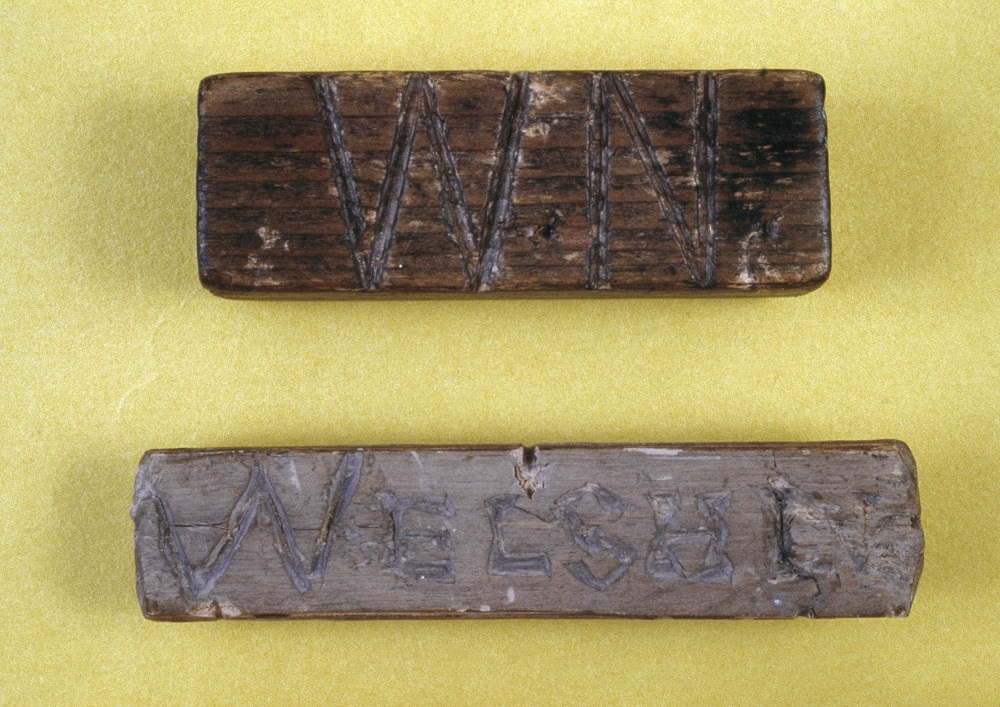Welsh language schooling is essential for the survival of our language

- St David’s Day Celebration, Cardiff Bay. Image: Welsh Government
Stephen Price
For a little too long now, mainstream media and political focus on Welsh language learning has been on DuoLingo – an American corporate’s language learning app, chiefly aimed at adults.
Welsh language education for children, meanwhile, has taken a comfortable back seat in national dialogue save for a mention here or there in council meetings that spill out into the press.
In just one example – within a few weeks of a report on growing numbers in one Monmouthshire primary, we shared another about the “bottleneck” caused by parents from this very school and others nearby having nowhere to send their children for secondary Welsh medium education – be it because of distance, negative reputation or future forecasts of too many pupils.
Not only is this of national importance – it is a national disgrace.
And that, there, is just one of many reasons why Wales won’t achieve a million Welsh speakers by 2050 if something doesn’t change. Fast.
Meaningful statistics
3 million DuoLingo users is cause for celebration. It’s wonderful.
That people from all over the world are backing the survival of Welsh in such an active fashion should be a kick up the twll for parents within Wales to actually see its essential value for us as a nation.
I am the first to applaud Welsh learning at home or abroad, it’s why I’m actively calling for people to get in touch for a focus on international Welsh learners.
What many of them say time and time again though, is that they lack confidence. They lack ability to use it and practise it, and more often than not it remains theoretical knowledge.
Someone somewhere learning a few words on Duolingo abroad, getting into the top few percentiles, will certainly look good as a dry statistic, but if Wales is to be meaningfully bilingual, if Welsh is to truly survive, then we must ensure that children in Wales are given the opportunity – the gift – of speaking Welsh.

I speak from experience when it comes to learning the language – I’ve got more than a few certificates in it, but I still doubt myself all the time with a misheld belief that I should always strive for absolute text book perfection when native speakers don’t beat themselves up in such a way.
But it’s not been easy and it’s a job that will never be done – I’ll still always head to English for safety and better comprehension. Welsh is not just English words replaced with synonyms, it’s its own Celtic branch with its own rules and poetic quirks that make it the beautiful language that it is. And not using it every, or any day in fact, means it’s slowly escaping me bit by bit.
Conversely, (most) children absorb another language like a sponge. Why do we deny them that?
English speaking Welsh people are quick to pull the ‘we were stopped speaking Welsh at such and such a date and it’s all because of such and such a reason’ card – I’ve been hearing it, and saying it myself, for 30 plus years – but it’s on us now.
Whether it’s colonial might, Treachery of the Blue Books, the Welsh Not, past economic prospects or internalised shame, we often talk like it’s a done deal. That happened, it’s terrible, but here we are, ‘it is what it is’.
What we deny, through this, is the inconvenient truth and admittance that we have the means to put this right – that we are the ones with the power to decide our country’s cultural and linguistic future, and we owe it to the next generation to recognise that.
We in Wales, today, have the most important role there is in the survival of Cymraeg. And its survival is going to be impossible if we don’t embrace Welsh medium schools and if we don’t legislate to ensure more children can and do attend Welsh speaking schools.
Six Nations
Six Nations season is upon us right now, and if there was a prize for most passionate supporters, most skin-pricking anthem, most proud nation, I know who would win – we all do.

But why the stumbling block over the one thing that truly sets us apart as a nation?
To rely on old tropes as markers of difference – a love of rugby or a lineage that goes back to time immemorial or whatever that might be won’t keep our language alive either.
The old argument that kids will learn less is beyond long redundant.
Wales’ poverty is the driving force behind our standing on educational league tables, not our inability to be fully bilingual like so many other countries across the world. We don’t give our children enough credit.
My loved ones from Malta, Wales, Norway, pick a country – their English language skills put most first language speakers to shame. And not just in Wales, but in England too. One only need switch on ‘Bri’ish’ television to get a taste of just how eloquent English speakers can be.
It takes nothing for people from other countries to switch in and out of their native languages to English, but it’s often to their own cost.
All it takes is one monoglot friend for a group to have to stop using their mother tongue. It’s the universal language, after all – but speakers of other languages are always the ones that have to do the bending to their own detriment.
Outside antagonists
Whenever we post anything pro-Welsh language here at Nation.Cymru, there’s more often than not a vocal minority that have a lot to say in the comments section of our website (haia bêbs!), often disguising their IP addresses or giving themselves a false Welsh language name in order to, I assume, do their bit for King and country and shift the narrative.
Lo and behold, the vast majority, despite their veiled usernames, are in London, the midlands, Birmingham etc… They have nothing to add to the conversation as far as I am concerned.
Many of these people (men, or men pretending to be women – imagine!) gained a peculiar interest in Welsh news with the 20mph not-a-blanket-policy introductions and they’ve yet to find a more interesting hobby. I hope they find one soon.
Of course, plenty of English speaking Welsh people, or Welsh residents I should say, are against their children being taught in Welsh, or even learning Welsh for that matter, but most tend to air actual concerns as opposed to baseless anti-Welsh ones.

Welsh language campaigners have long called for the introduction of Welsh medium education for all.
Cymdeithas yr Iaith launched a draft Welsh Language Education Act in summer 2022, and following a period of consultation and discussion has published the act in its final form.
The campaign group collaborated with Fellow in Welsh Law, Keith Bush, to draw up the legislation.
Measures in Cymdeithas yr Iaith’s Welsh Language Education Act include:
-
- Setting a statutory goal on the face of the legislation to ensure that Welsh will be the language of education in Wales by 1 September 2050, which would mean that, by then, all children will receive a Welsh-medium education;
- Moving every school over time along the language continuum to become a Welsh-medium school;
- Replacing Welsh in Education Strategic Plans with national and local interim statutory targets, linked to a new funding formula with revenue and capital incentives;
- Setting statutory targets for recruiting and training the Welsh-medium education workforce, through initial teacher education and in-service training programmes;
- Establishing a single learning pathway and a single Welsh language qualification rather than continuing the dual system of first language and second language Welsh.
Dedicated campaigning
Mabli Siriol Jones, Chair of Cymdeithas yr Iaith’s Education Group, said at the time: “Our Welsh Language Education Act is the culmination of almost a decade of detailed policy work and dedicated campaigning, which has changed people’s expectations about what is needed in our education system.
“The Government is now saying that all children should leave school speaking Welsh, but if they’re serious about that, the only way to achieve the goal is to move towards Welsh-medium education for all. Our Act offers a detailed, achievable, ready-made plan. We ask the Government to adopt it.”
She added: “The white paper is an important step forward and shows that the Government accepts that our education system needs to be transformed. But the white paper will only be a starting point and we understand that the proposals do not currently include robust statutory targets to ensure that every child grows up to be a confident Welsh speaker.
“There is a danger that the targets will be too low, the aim too vague, and the actions insufficient. It’s vital that the Act in its final form contains ambitious statutory targets in terms of developing the Welsh-language education workforce and increasing the number of children receiving Welsh-medium education; and that establishing a single continuum and a single Welsh language qualification is included in the legislation.
“The Welsh language belongs to every child in Wales, whatever their background. We believe we need a system that ensures educational justice for all children and puts an end to the artificial divisions in our schools. Welsh language education for all is the only solution.”

Welsh language provision
The proposals in the Government’s White paper will mean an increase in the number of Welsh-medium schools and also an increase in the Welsh language provision in schools that aren’t already designated as Welsh-medium schools.
The paper also includes a commitment for the Welsh Government, through the Co-operation Agreement with Plaid Cymru, to conduct a study with specialist input to consider a steeper trajectory for the growth of Welsh medium education for 2050 and beyond.
While launching the White paper, Minister for Education and Welsh Language, Jeremy Miles said: “We are committed to a future where everyone has the ability and the opportunity to use Welsh in their everyday lives.
“That’s why we are consulting on proposals to put our aims into law and to improve Welsh language skills in all schools.”
Plaid Cymru’s Cefin Campbell added: “Our long-held vision is that the education system is absolutely key in giving each child the gift of fluency in the Welsh language.
“Bilingualism and multilingualism are the norm across Europe; the proposals in the White Paper take us further towards ensuring that our education system delivers Welsh to all pupils in a way that creates confident speakers.”
Welsh joy
A hobbyist learning Welsh at home on an app, with no one to chat to when they visit certain parts of Wales may just as well be learning Klingon or Esperanto if we, here, in the home of yr hen iaith are speaking the language of our neighbouring country.
We’ve nailed that. Why don’t we go one further.
I take my hat off to the night schoolers and app users and learners in every corner of the world, but for Welsh to survive it needs to return to being an everyday, every function familial, community and national language, and that will only happen with our schools here in Wales teaching in Welsh.
The joy of just naturally speaking Welsh with a friend, a stranger in a coffee shop, a child whose parents sent them to a Welsh language school or chatting with someone else who decided to ‘claim it back’ – it’s up there.
Let’s give all of Wales that.
O bydded i’r hen iaith (meaningfully) barhau!
Support our Nation today
For the price of a cup of coffee a month you can help us create an independent, not-for-profit, national news service for the people of Wales, by the people of Wales.






I do not think Esperanto should be classed with Klingon to contrast with Welsh. Rather Esperanto and Wesh should be classed as living minority languages, to be contrasted with Klingon, which is a hobby language.
The Welsh Government have zero interest in getting one million speakers. It’s simply an action to appease the Welsh speaking electorate and give the impression that they’re doing something. Otherwise they would be building many more Welsh schools. Multiple surveys from Rhieni dros Addysg Gymraeg show that the demand for Welsh medium Education is huge.
Exactly, it’s PR! Nothing more. The fact they won’t put in safeguards for place names prove as much.
Wales needs to improve the quality of its education before it starts trying to change language. As an English medium Maths teacher in Wales, I use resources from England almost exclusively. WJEC does not encourage pupils to think. Trying to teach in Welsh will dumb down the content even more. We don’t even teach vectors or equations of circles until year 12, two years after England. It’s shameful.
Absolutely pointless if all media those children consume is presented in English. All you will be doing delaying the inevitable. Everything points to this being the governments position! An example of this is saying we want 1 million speakers all the while not putting in safeguards for place names.
It may be dangerous to assume that the education system can be expected to do the heavy lifting, without people actually having more opportunity to use the language in the real world, and it would be vulnerable to the government just claiming success once they’ve exposed 1 million to the language in schools, and claiming that they are speakers of the language.
Maybe we should have a referendum on the whole issue of the Welsh language.many Welshman could not give a damn about the language. The whole issue is being driven by a very few and rammed down the throats of the many.
With our education system in Wales failing the majority of it’s customers, perhaps we should let the customers decide ?